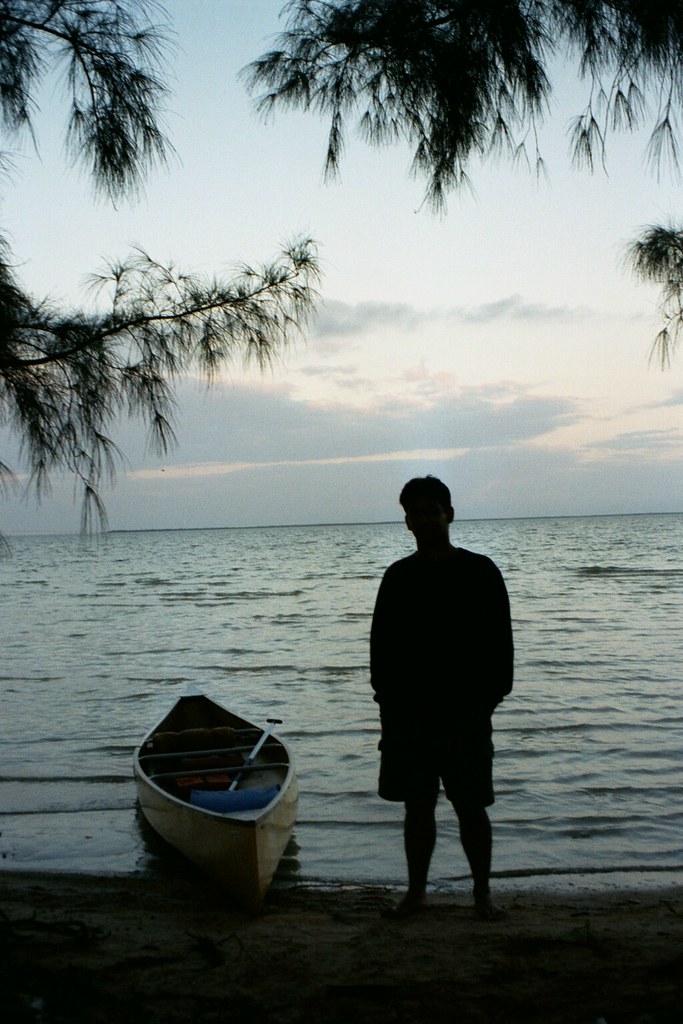Today is India’s 59th independence day. Thus begins independent India's 60th year. Lets us hope the title above does not ring true.
Our flat in Delhi overlooks a little park, which has seen much bonhomie this morning. B-10’s young and old alike gathered to sing, perform, and generally raise some noise to mark the occasion. That much of the singing was off key, and that people were as tolerant of older folks trying to hog the stage as they were of little kids, was not of much importance.
On TV, prime minister Manmohan Singh announced from the ramparts of the Red Fort India’s resolve to fight terrorism, her hopes for future generations, and so on. He does not make much of an inspiring speaker.
I arrived in Delhi yesterday, early in the morning. My flight from Beijing stopped off at Shanghai, where we changed planes, before touching down about 30 minutes before time at IGI airport in Delhi. On the flight I bumped into a group of eight Chinese engineers who were headed to Rajkot in Gujarat to help in highway construction. They were delighted to learn that I could speak a little Chinese. I happened to sit next to one of them from Shanghai to Delhi and we attempted a reasonable conversation, almost entirely in Chinese, since his English could hardly pass muster. I have now been invited to drink baijiu when he is in Beijing next.
It feels great to be back home. Delhi’s skies are definitely bluer than Beijing’s. But Delhi is also much more of a grand mess than Beijing is.
Wednesday, August 16, 2006
Sunday, August 06, 2006
Chance encounters
I am sitting in the Bookworm, Beijing’s trendy, primarily geared towards foreigners, library-lounge-restaurant on Sanlitun Nanjie. At a table nearby is a gentleman who seems awfully familiar but, for the life of me, I am unable to place him. Moments such as these are irritating. A couple of weeks ago I bumped into Robbie Barnett, who teaches modern Tibet at Columbia. I had just emerged from the Gulou Dajie subway station, heading towards Houhai for a meeting with my friend Jen, when I spotted Robbie. Our eyes met and there was perhaps a faint glint of recognition. As I walked past, the tumblers all fell in place, and the lock sprung open. I introduced myself and the following week a few of us Columbia folks in Beijing got together at the Drum and the Bell, in the shadows of the eponymous Drum and Bell Towers, for some drinks and chatter.
Robbie had some interesting things to tell about his summer in Tibet. He had arrived in China earlier in the summer, leading a group of Columbia graduate students who were to spend the summer in Lhasa learning Tibetan. Upon arriving in Chengdu they were informed that the university they had made arrangements with could no longer provide any training. As the tourism and foreign ministries tried to align their stories, the group was able to slip into Lhasa on tourist permits. In Lhasa, Robbie was able to convince some of the now barred teachers into lecturing, which, on technical grounds one could argue, is not teaching. But the local security bureau got wind of this pretty quickly, and after four or five days, the lectures too abruptly ended. In the end, some students traveled to Kathmandu for their lessons, and those that could not afford the trip, attempted self-study in Lhasa. During his stay in Tibet, Robbie also had public security men detailed to shadow him for a few hours everyday.
The group also stated that even though the Beijing-Lhasa rail is now operational, Lhasa is mostly unprepared for the huge influx of tourists that are now flooding the plateau. From sufficient hotel rooms, to water supply to waste management, Tibet’s administration is apparently already stretched thin. And this is just the beginning...
Sitting in Beijing one can be lulled into thinking that it is a microcosm of China. In addition to the many levels on which this is an obvious fallacy, Robbie and the Columbia crew’s experiences provide a more [politically] specific and geographically localized rebuttal (if one were indeed needed).
Robbie had some interesting things to tell about his summer in Tibet. He had arrived in China earlier in the summer, leading a group of Columbia graduate students who were to spend the summer in Lhasa learning Tibetan. Upon arriving in Chengdu they were informed that the university they had made arrangements with could no longer provide any training. As the tourism and foreign ministries tried to align their stories, the group was able to slip into Lhasa on tourist permits. In Lhasa, Robbie was able to convince some of the now barred teachers into lecturing, which, on technical grounds one could argue, is not teaching. But the local security bureau got wind of this pretty quickly, and after four or five days, the lectures too abruptly ended. In the end, some students traveled to Kathmandu for their lessons, and those that could not afford the trip, attempted self-study in Lhasa. During his stay in Tibet, Robbie also had public security men detailed to shadow him for a few hours everyday.
The group also stated that even though the Beijing-Lhasa rail is now operational, Lhasa is mostly unprepared for the huge influx of tourists that are now flooding the plateau. From sufficient hotel rooms, to water supply to waste management, Tibet’s administration is apparently already stretched thin. And this is just the beginning...
Sitting in Beijing one can be lulled into thinking that it is a microcosm of China. In addition to the many levels on which this is an obvious fallacy, Robbie and the Columbia crew’s experiences provide a more [politically] specific and geographically localized rebuttal (if one were indeed needed).
Subscribe to:
Comments (Atom)
